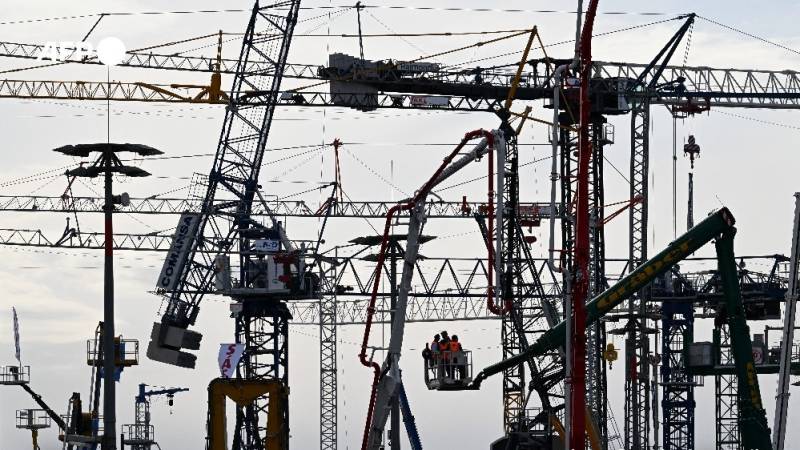EU lifts growth forecast as eurozone skirts recession

Stay tuned with 24 News HD Android App

Europe's economy will grow more than previously forecast this year as it avoids a winter recession, with inflation expected to ease as gas prices have fallen, the European Commission said Monday.
The 20-nation eurozone's economy is now expected to expand by 0.9 percent instead of 0.3 percent, as "favourable developments" helped the single-currency area weather the fallout of Russia's invasion of Ukraine, the European Union's executive arm said.
The eurozone and the wider 27-nation EU are now expected to "narrowly avoid" a technical recession -- two straight quarters of economic contraction -- this winter, the commission said.
"These are quite outstanding outturns, proving the remarkable resilience of the EU economy to the headwinds unleashed by Russia's war against Ukraine and in particular the energy crisis," said the EU's economy commissioner, Paolo Gentiloni.
Inflation is now expected to reach 5.6 percent in the eurozone in 2023 -- down from a previous forecast of 6.1 percent -- as oil and gas prices have eased after soaring when the conflict broke out a year ago.
After consumer prices jumped to a record high of 10.6 percent in October, they have slowed for three straight months, suggesting that "the peak is now behind us", the commission said.
'Doesn't mean good'
The European Central Bank launched a series of interest rate hikes last year in efforts to control inflation.
European nations, which were heavily reliant on Russian energy before the war, have scrambled to diversify their supply sources as Moscow slashed deliveries.
EU governments rolled out relief measures to cushion consumers and businesses from surging prices, and rushed to fill up storage facilities.
A milder winter enabled consumption to fall.
Wholesale gas prices have dropped below pre-war levels, the commission said.
"In addition, the EU labour market has continued to perform strongly, with the unemployment rate remaining at its all-time low," it added.
The commission also raised its growth forecast for the EU bloc to 0.8 percent.
Germany, Europe's biggest economy, is now expected to avoid a recession and eke out growth of 0.2 percent this year.
Gentiloni warned that "better than expected doesn't mean good".
'Main risk': war
This year's forecast for both areas is down from 3.5 percent growth in 2022.
"Europeans still face a difficult period ahead, with growth still expected to slow and inflation set to relinquish its grip on purchasing power only gradually," Gentiloni said.
"That's why we must show the same resolve and ambition as we did over the past three years when it comes to tackling with common responses the challenges we face today," he said.
The commission has opened a debate on relaxing the bloc's state aid rules and creating a "sovereignty fund" in the face of high energy prices and competition from subsidies US and Chinese green tech programmes.
Consumers and business still face high energy costs while core inflation, which excludes energy and unprocessed foods, was still rising last month, the commission said.
As inflationary pressures persist, the ECB's "monetary tightening is set to continue, weighing on business activity and exerting a drag on investment", it said.
The European Commission left the eurozone growth forecast for 2024 unchanged at 1.5 percent.
It predicted that inflation next year would be at 2.5 percent, still above the ECB's target of two percent.
"The main risk to these forecasts is based on the geopolitical tensions, the evolution of the war," Gentiloni said.
